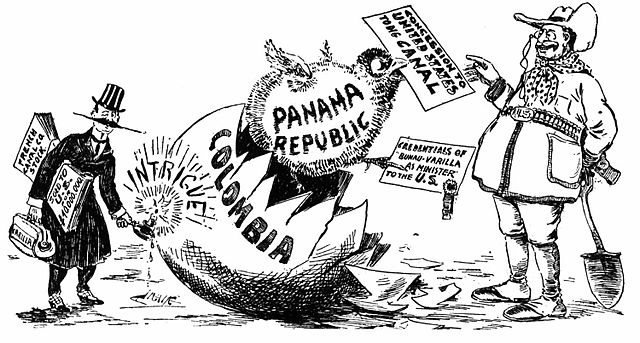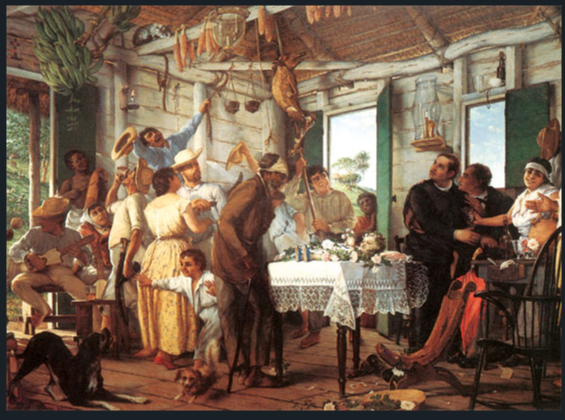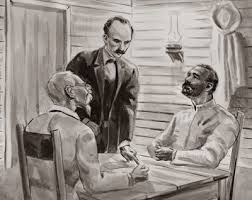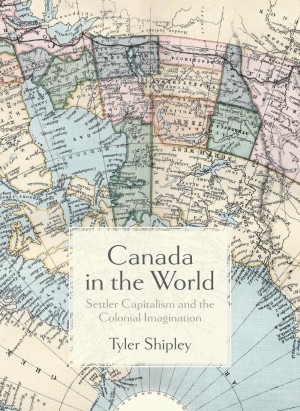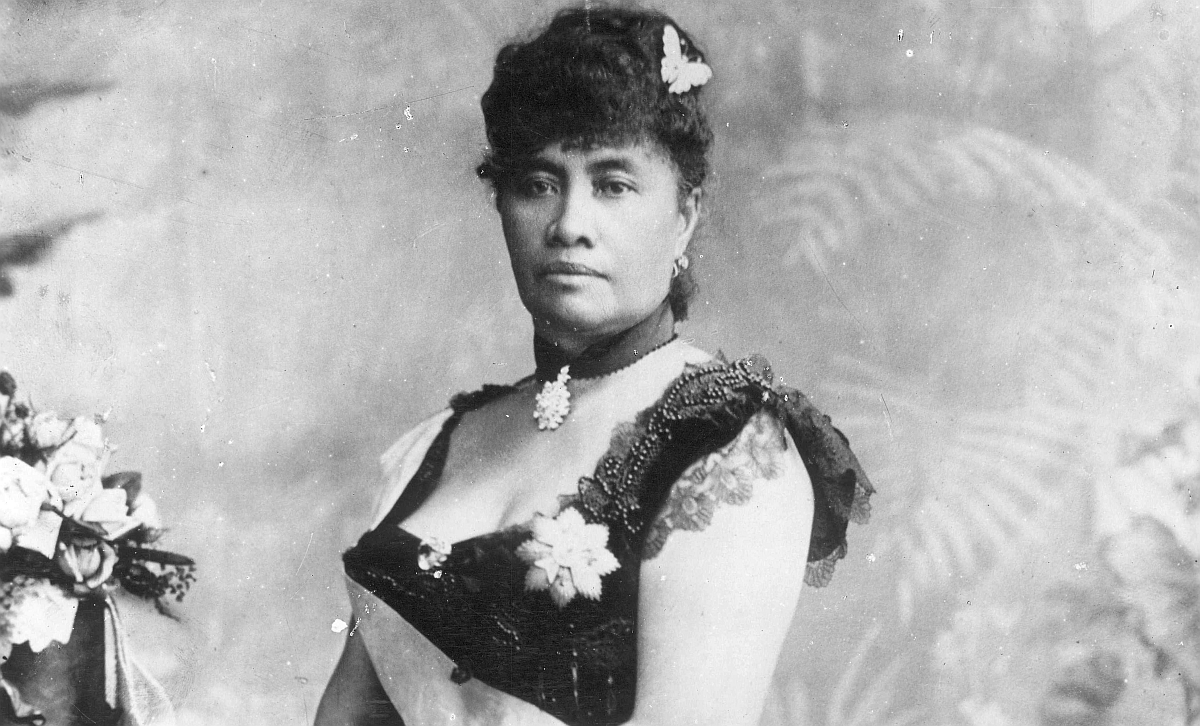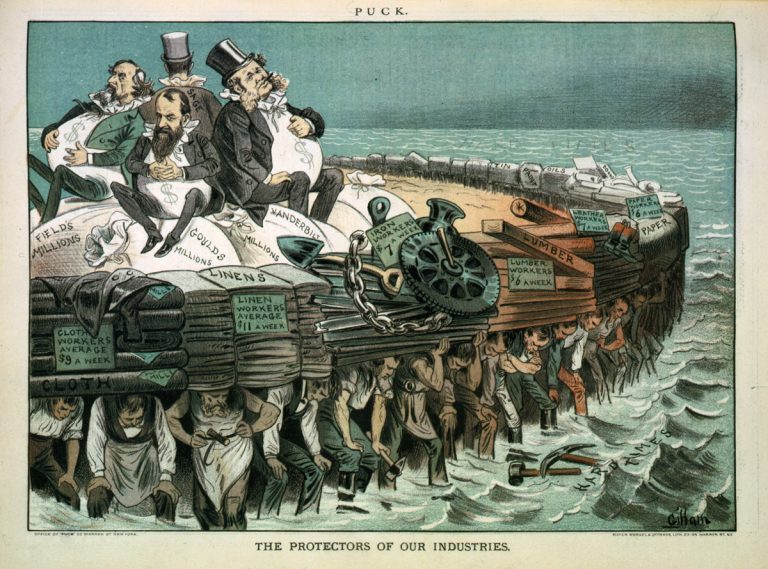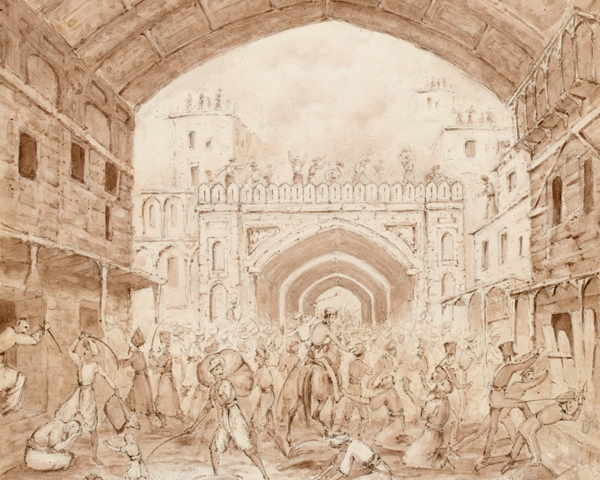A complex multinational megaproject with layers of government corruption and massive government funds. A separatist movement created and sponsored by the US. A chunk of territory carved out of an existing country for imperialist use. Workers exploited to death. And a shining imperialist possession at the end. We talk about the creation of Panama and the Panama Canal, another prototypical imperialist operation that offers many warnings for the next 120 years.
Audio
Civilizations 37d: Yankee Imperialism pt4 – Puerto Rico’s thwarted autonomy
Through their own efforts, Puerto Rican revolutionaries won a charter of autonomy from Spain and were on their way to winning independence. Then Spain handed its colony over to the US, and the US has colonized it ever since. We talk about how the US invented the concept of “odious debt” to avoid paying Spain’s colonial debt, then promptly saddled Puerto Rico with an odious debt of its own.
Civilizations 37c – Yankee Imperialism pt3 – Cuban Independence vs the US Empire
We tell the story of Cuba’s movement for independence from Spain following the remarkable career of Jose Marti from his teenage years to his unlucky demise. We pick up the story of the Spanish American War in Cuba from the USS Maine incident (“To Hell With Spain! Remember the Maine!”) and the possibility that it was faked. Part 3 of our series on Yankee Imperialism.
Special Broadcast: Canada in the World with Tyler Shipley and The Brief
A Canada Day reckoning as Indian Residential School properties become crime scenes with the (re)-discovery of mass graves of Indigenous children. We are joined by author of Canada in the World, TYLER SHIPLEY to discuss Canada’s first foreign policy – its genocide of the Indigenous nations in the path of capitalist settlement.
This broadcast is a co-production of The Brief Podcast and The Anti-Empire Project. Production by Pierre Loiselle and music by Greg Wilson.
Episode: Settler Canada (special broadcast)
Date: 29 June 2021 | Length: 59:58
AEP 86: A People’s Green New Deal with Max Ajl, and Stan Cox
Max Ajl has a new book, A People’s Green New Deal; Stan Cox, author of The Green New Deal and Beyond and the upcoming book The Path, joins me as a co-host as we talk about Green New Deals and imagine dealing with Climate Change as if the rest of the world existed (and mattered).
Civilizations 37b – Yankee Imperialism pt2 – Regime Change 1893: The US overthrow of Queen Liliuokalani in Hawaii
Starting in earnest in the early 1880s the US embarked on a prototypical regime change operation: propaganda demonizing the targeted regime, financial control of the targeted state, suborning of key government officials, deactivation and destruction of the sovereign military force from within, a coup, followed by an invasion disavowing any US ambition or interest, and finally the swallowing of the country in to the US Empire. After the subjugation of the Indigenous Nations after the Mexican-American War covered in a previous episode, this was one of the first regime changes, and it set the tone for the century-plus of regime changes to follow. We also tell the story of how from King Kalakaua to Queen Liliuokalani, Hawaiian leaders (and people) tried to protect their sovereignty.
Civilizations 37a: Yankee Imperialism pt1 – the Robber Barons
At the end of the 19th century the US acquired a substantial overseas empire – Hawaii, Samoa, Guam, the Philippines, Puerto Rico, Cuba, as well as imperialist relations all around the world. In this miniseries we look at this Yankee Imperialism, focusing on the Spanish-American War. But first, the post-Reconstruction domestic situation in the US – the robber barons, the violent strikes, and the racial apartheid that fueled the American system. We use two books that are two sides of the same people’s history coin: Dave reads from Howard Zinn’s People’s History of the United States; Justin from J Sakai’s Settlers.
Civilizations 36b: Islam & Imperialism 3b – the rest of the Anglo-Afghan Wars
A strategically bankrupt expedition by a vindictive, racist, imperialist power to conduct a series of genocidal atrocities on a Muslim population solely because they dared to fight back. And no, we aren’t talking about last week – we conclude the Islam & Imperialism segment of Civilizations with the Anglo-Afghan wars starting with the Army of Revenge in 1842 and going down to the fixing of the Durand Line. What could go wrong?
AEP 85: The Rise of the Right in India and Elsewhere, with Prof. Apoorvanand
In early May 2021, I had the honor of being on a panel on the Rise of the Right with Prof. Apoorvanand of Delhi University (and some other great speakers as well). I asked Apoorvanand to have a follow-up discussion with me here to analyze how the far-right ecosystem of organizations and institutions infiltrated Indian society and took it over, including the education sector and universities, and what lessons that takeover might have for people interested in trying to defend society. Lessons for India and elsewhere too.
Special Broadcast: Ceasefire in Gaza
We reconvene the roundtable to discuss the ceasefire in Gaza. Nora Barrows-Friedman is an editor at the Electronic Intifada, Jon Elmer is a journalist who lived for years in Gaza, Justin Podur is the author of Siegebreakers, and Tarek Loubani is an emergency room doctor, often at Shifa, Gaza’s main hospital.
This broadcast is a co-production of The Brief Podcast and The Anti-Empire Project. Production by Pierre Loiselle and music by Greg Wilson.
Episode: Ceasefire in Palestine (special broadcast)
Date: 26 May 2021 | Length: 51:12

